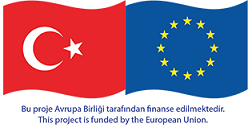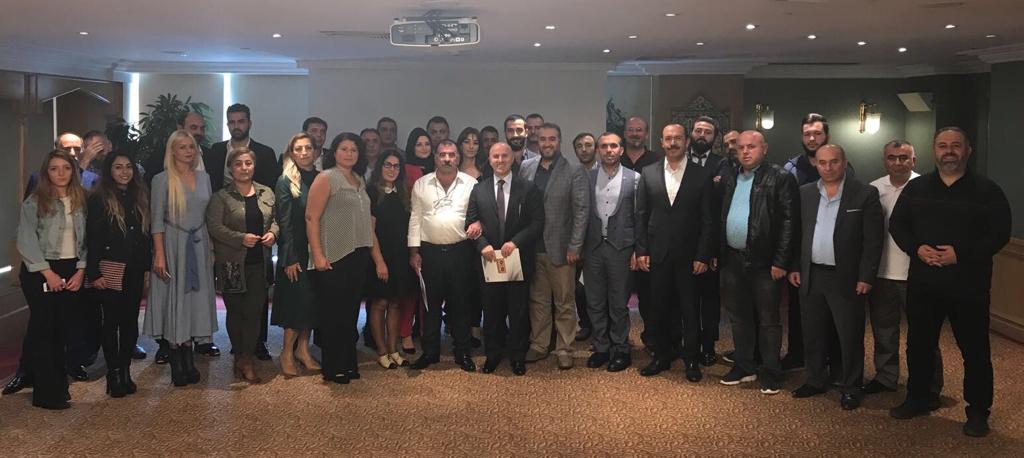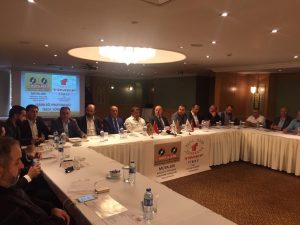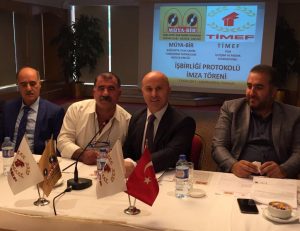Hilliard,
15°C,
kapalı
DOLAR: 32,5583
EURO: 34,8725
ALTIN: 2.425,15



Royalty Protocol between TIMEF and MUYA-BIR
An important problem of local media is royalty fees that result in lawsuits, fines and even the imprisonment of the media representatives. TIMEF pioneered meetings between local media and professional societies representing music producers such as MUYA-BIR, MUYAP, MESAM, MSG, and MUYOR-BIR. The main motivation of the meetings was to decrease the royalty determined unilaterally by these organizations to reasonable and payable levels. As a result of the negotiations, TIMEF signed a protocol with MUYA-BIR. TIMEF continues its efforts to reach an agreement with the remaining four organizations that cannot reach an agreement with TIMEF because ofthe conflictsamong each other.
The Overall View Based on Activities
Local Media Report
The results of the domestic and international media activities of TIMEF indicate that the media sector has urgent problems that cannot be addressed without the support of all related stakeholders.
 TIMEF has prepared a document titled “Local Media Report” on the critical challenges of local media that needs to be dealt urgently. In addition to the findings from its activities, TIMEF also received feedbacks through face to face or online meetings with local media involving press, radio and TV stations, news sites, professional chambers, Turkey Journalists Confederation, and other media associations and organizations operating in the sector.
TIMEF has prepared a document titled “Local Media Report” on the critical challenges of local media that needs to be dealt urgently. In addition to the findings from its activities, TIMEF also received feedbacks through face to face or online meetings with local media involving press, radio and TV stations, news sites, professional chambers, Turkey Journalists Confederation, and other media associations and organizations operating in the sector.
“The Local Media Report” consisting nine articles have been presented to the executive branch, political parties, and concerning people and organizations. The summary of the nine articles of the presented report are as follows:
 requirements of Media localness and subsidiarity.
requirements of Media localness and subsidiarity.Finally, RTUK should apply an amnesty program for organizations whose broadcasting has been ceased since they cannot pay frequency/channel allocation fees, or RTUK should at least not collect these fees during the suspended operations.